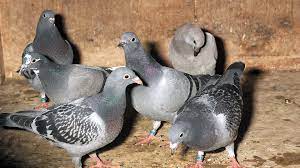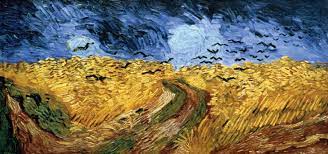How To Thrive With New Hampshire Pigeons

Do you love pigeons? If so, you’re not alone many people around the world have a deep affection for these flightless birds. In fact, in some parts of the world, pigeons are considered a vital part of culture and tradition. So what’s the big deal about New Hampshire pigeons?
For one thing, they’re one of the most common types of pigeons in the United States. And while they don’t hold any religious significance in the U.S., they do play an important role in some cultures around the world such as India and China. Plus, New Hampshire pigeons are some of the best racing pigeons in the country.
If you’re interested in learning more about these fascinating creatures, or if you want to start racing pigeon yourself, read on.
What is the New Hampshire Pigeon?
The New Hampshire Pigeon is a domesticated bird that is originally from the state of New Hampshire. This bird is a member of the dove family and can be found in many parts of the world. The New Hampshire Pigeon is a popular bird for both hobbyists and ornithologists and is considered to be a very versatile bird.
The New Hampshire Pigeon is a medium sized pigeon and can typically be found in colors such as black, dark brown, and light brown. The bird has a square head, a short neck, and a small bill. The New Hampshire Pigeon is known for its distinctive cooing sound and is a popular bird for ornithologists to study.
How Do Pigeons Inhabit New Hampshire?
The pigeons found in New Hampshire inhabit a variety of habitats, from forests to mountains to coastal areas. Many of the birds are descendants of pigeons that were brought over by Europeans in the 18th century.
Today, the pigeons in New Hampshire are well integrated into the local ecology. They are used by farmers to monitor crop production and by foresters to track the movement of trees and other vegetation.
What Special Features Make New Hampshire Pigeons Unique?
New Hampshire pigeons are some of the most unique and special pigeons in the United States. These birds are known for their friendly and outgoing personalities, which makes them great companions. Here are five special features that make New Hampshire pigeons unique:
They Are Friendly And Outgoing
New Hampshire pigeons are some of the friendliest birds in the United States. They are always looking to make new friends and are great companions. These birds are also very social, which makes them good at flying in large groups.
They Are Good Flyers
New Hampshire pigeons are some of the best flyers in the United States. These birds are able to stay in formation and fly long distances with ease. This makes them great for racing or for traveling to distant places.
They Are Good Swimmers
New Hampshire pigeons are also good swimmers. These birds can swim very well and can even stay afloat for a short period of time if necessary. This is an important trait for waterfowl, as it allows them to travel long distances without having to stop for a drink.
They Have A Strong Flock Bonding System
New Hampshire pigeons have a strong flock bonding system. These birds are social creatures and rely on each other for survival. As a result, they are very loyal to their flock and will defend them from any threats.
What Are The Advantages of Owning a New Hampshire Pigeon?
Owning a New Hampshire pigeon can provide many advantages. For one, they are known for their intelligence, which makes them good pets. They also make great bird feeders, as they will eat anything.They are relatively cheap to maintain and can be a lot of fun to own.
One disadvantage of owning a New Hampshire pigeon is that they can be vocal, and they may be difficult to train.
Conclusion
Whether you’re a beginner or an experienced flyer, there are many things you can learn from pigeons. They are adaptable birds that thrive in all types of environments, and they have been used for centuries to transmit messages and deliver goods. If you’re looking to add some interest and excitement to your bird feeder or garden, then pigeons may be the perfect bird for you.





